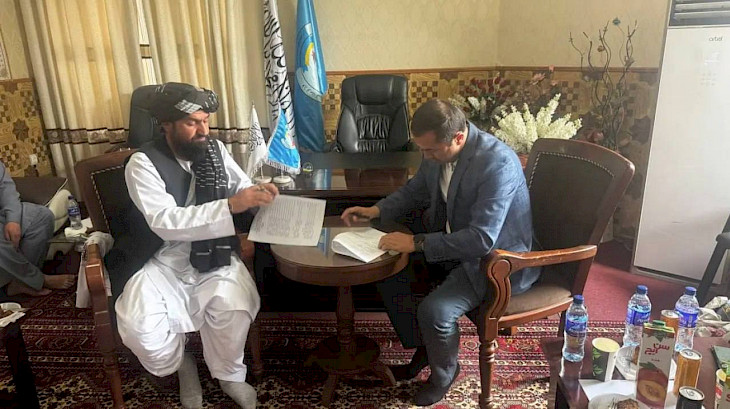In April 2025, Uzbekistan and Afghanistan signed a significant agreement on the joint management of water resources in the Amu Darya River Basin — a milestone in strengthening regional cooperation and promoting the sustainable use of transboundary water resources. The announcement was made by the press service of the Government of Uzbekistan. Eurasiatoday.ru outlines the key implications of this development.
Agreement Signing: Key Participants and Focus Areas
The agreement was concluded during a working visit of the Uzbek delegation to Afghanistan, headed by Deputy Minister of Agriculture Jamshid Abduzukhurov. The discussions focused on cooperation in agriculture, water resource management, and trade and economic relations.
Particular attention was paid to enhancing bilateral trade, simplifying export-import procedures for agricultural products, plant quarantine regulations, and the sustainable use of shared water resources.
The Amu Darya’s Critical Role in the Region
The Amu Darya River is one of Central Asia’s most vital water sources, sustaining millions of people across Uzbekistan, Turkmenistan, Tajikistan, and Afghanistan. Effective management of its waters requires coordinated action among all riparian countries to avoid conflict and ensure long-term sustainability.
The Koshtipa Canal Project: Concerns and Challenges
Since 2022, Afghanistan has been constructing the Koshtipa Canal, a major infrastructure project expected to be completed by 2028. The canal aims to divert water from the Amu Darya to irrigate 550,000 hectares of land.
However, experts warn that the project could reduce the river's water levels by 15–20%, which would severely impact agriculture in Uzbekistan and Turkmenistan.
Legal Context: International Water Rights
Afghanistan is not a party to most existing regional agreements on water resource distribution, including the 1992 Almaty Agreement. Nonetheless, under international law, every country has the right to equitable and reasonable use of transboundary water resources.
This highlights the urgency of integrating Afghanistan into regional water management frameworks.
Environmental and Social Implications
A significant reduction in the Amu Darya’s flow could lead to ecosystem degradation, increased soil salinity, and deteriorating living conditions for populations downstream.
Moreover, the Koshtipa Canal could hinder efforts to restore the Aral Sea and further exacerbate the region’s environmental challenges.
Way Forward and Outlook
The agreement between Uzbekistan and Afghanistan paves the way for:
-
The creation of joint working groups on water resource management;
-
Development of monitoring and data-sharing mechanisms;
-
Adoption of modern water-saving technologies;
-
Engagement of international organizations to support project implementation.
CentralasianLIGHT.org
May 1, 2025

